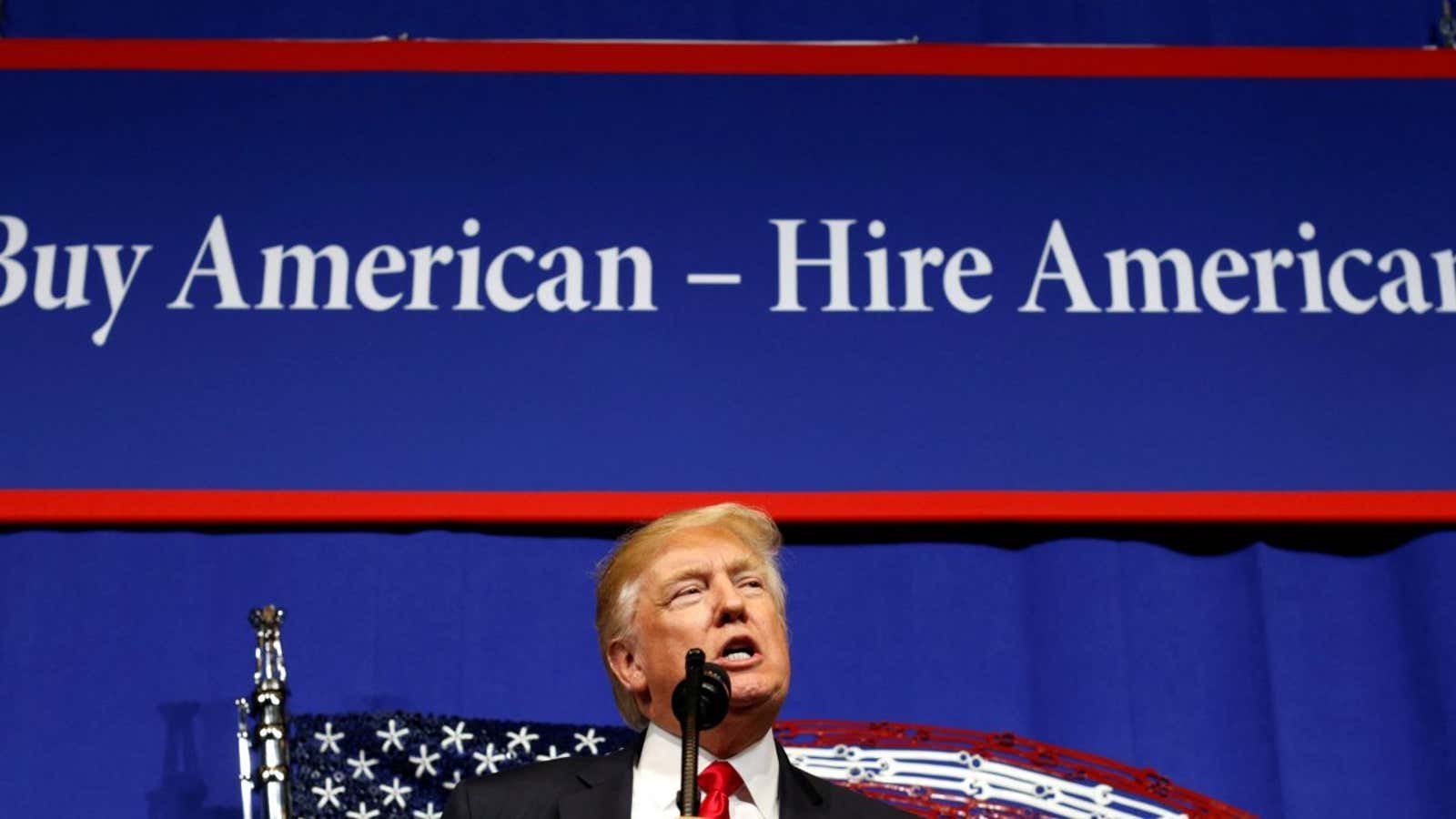The Donald Trump administration has been getting a lot of flak from Indian techies for tightening immigration rules. But the US president shares only part of the blame. For, even since Barack Obama’s days in the White House, Indian IT companies have been applying for, and securing, fewer H-1B visas.
The top seven IT firms were issued only 9,356 new H-1B visas for initial employment in 2016, which is a 37% drop from the 2015 figure, according to the National Foundation for American Policy (NFAP), a non-profit, non-partisan public policy research organisation. For instance, Tata Consultancy Services (TCS) applied for fewer visas in 2016, while the heads of other companies say they will reduce the dependence on work visas in the US.
“H-1B petitions approved for initial employment in FY 2016 were filed by employers in April 2016, which shows (that) the drop in H-1B visa use by these companies is not due to Donald Trump’s election,” NFAP said in a report (pdf). The US currently has a cap of 65,000 visas a year, but receives nearly three times as many applications. So, the authorities pick lots, giving a higher chance of securing a visa to companies who file more applications.
Meanwhile, the main reason behind the fall in number of petitions is the IT industry’s shift towards advanced technologies such as cloud computing and artificial intelligence, which reduced the need for a huge workforce. So, firms are increasingly choosing to rely less on visas and build up the domestic workforce in the US instead, the NFAP report says.
These trends have escaped the notice of the Congress and other policymakers, who have aimed more immigration restrictions at IT companies, the NFAP said.
The number of approved H-1B petitions for India’s largest IT firm TCS declined by 56% in 2016 from 2015, while Wipro’s numbers declined by 52% that year. Infosys’s numbers declined by 16% in 2016 over 2015. Tech Mahindra saw a 22% decline, while Mindtree had a 30% decline, according to the report. The NFAP expects numbers to fall this year as well.
“The data are significant, since in the past, US policymakers have used the number of visas going to Indian-based companies as a political or policy reason to propose new immigration restrictions and to not raise the low annual supply of H- 1B visas, which has been exhausted every year for the past 15 fiscal years,” NFAP said in the report.
